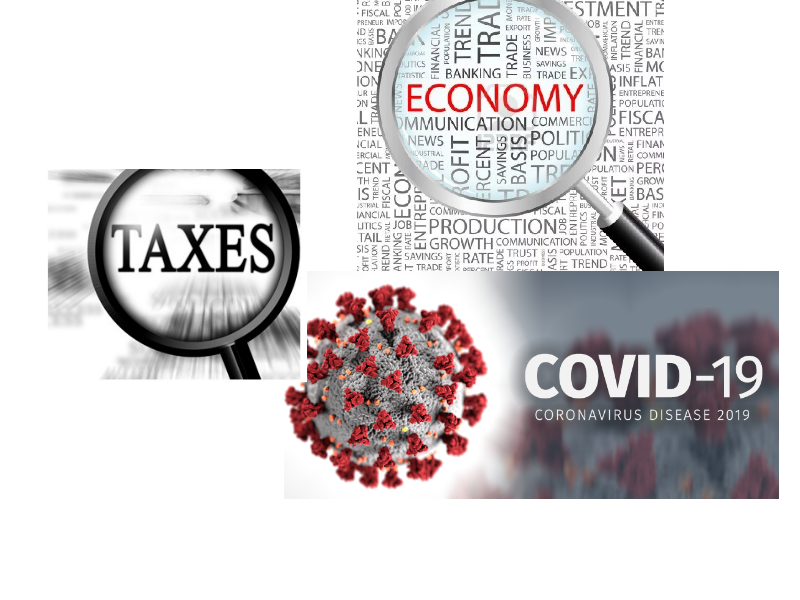When the IRS announced in 2020 that it would extend the filing deadline to July 15, the industry breathed a collective sigh of relief, thankful for three extra months to meet deadlines, while also managing the unprecedented circumstances of the COVID-19 pandemic that brought so much disruption to the industry, and beyond.
This year, while a marked improvement from its predecessor, has faced a few similar challenges – primarily, that tax practitioners have again been left scratching their heads. This time, the confusion is around why the IRS gave only one extra month for the tax season, compared to three last year. The injury has been worsened by the fact that the IRS postponed its opening date by about three weeks, adding pressure to an already-difficult season marked by vast tax code changes brought by the Trump administration. Then the American Rescue Act was passed, adding its own set of unique complications, for practitioners and taxpayers alike.
These factors have made much of the industry feel like it can’t catch a break. CPAs and others in the accounting industry have been on a long slog since March 2020.
But what brought us here? Obviously, COVID is the simple answer – but there’s much more to unpack. COVID attacked our industry via multiple vectors that were completely unprotected.
For starters, remote work had been slow to permeate our industry, so many firms had to adapt to all-digital, remote-work conditions virtually overnight. Most firms dealt with, and are still dealing with a myriad of issues related to remote work, from data security to remote workflow management. Employees called in sick at never-before-seen rates, and sadly, some even passed away.
Clients faced many of the same challenges, and communicating with them in an effective and timely manner became all the more difficult as they were dealing with going remote, too. They, too, had to lay off or furlough portions of their workforce and redistribute responsibilities to employees who had catching up to do in new roles.
Then came the economic stimulus, which in and of itself would not have added to the complexity of the day-to-day work that we do, but its implementation came with its own set of implications. The PPP program had a massive impact on our clients and ourselves. For many clients, we were at the front lines, helping them understand the new legislation in real time. If they were eligible for benefits, we now had the added responsibility of assisting them in getting their documentation in order and helping them with their applications; and those were just our business clients.
Our clients had their own unique set of challenges to deal with, from finding toilet paper, quarantining themselves from their own family within their own homes, to hosting virtual funerals. All this to say that we experienced the most extensive and most rapid redistribution of schedules ever seen while dealing with unprecedented stress levels.
So those were the COVID-related factors, but what else brought us to this place? It’s no secret that the IRS is chronically underfunded. The reasons for that underfunding remain unclear and up for debate – are they political or simply operational? But the outcome is the same: Millions of people relying on an outdated, clunky institution that bears a massive burden.
Anyone who has ever had to call the IRS knows the agency is precariously understaffed. Anyone who has had to retrieve transcripts while their system was down knows the IRS isn’t up to the task of implementing rapid, widespread policy changes (or any other kind of change). Their focus has shifted towards corporate compliance and the enforcement of large-scale tax programs (e.g., EIC). Needless to say, their focus has not been on implementing sweeping stimulus and issuing guidance for taxpayers and practitioners.
Fast-forward to today, and you can still see that the IRS has been saddled with far too much for its meager budget and staffing. Our industry, one that has constantly been riddled with burnout over decades is left to serve as the intermediary between our clients and the IRS.
Now, we have to digest the American Rescue Plan Act and all it entails in a compressed time frame. To grant an additional 1-2 months would make all the sense in the world. The only questions that remain are: Will the IRS pull the trigger on this extension? And will they do us the courtesy of notifying us accordingly, in advance of May 17?
=========
Richard Laviña, CPA is the CEO and co-founder of consumer, small business and enterprise SaaS accounting-tech company Taxfyle. Prior to founding Taxfyle in 2015, Richard worked for PricewaterhouseCoopers as an auditor. While working at PwC, he obtained his Master of Accounting and was inspired to start Taxfyle, having witnessed firsthand and learned about the systemic inefficiencies of the accounting industry. Since then, Ricky and his team have transformed Taxfyle from an idea to a venture-backed company that serves tens of thousands of taxpayers each year, hundreds of CPA firms around the country, and counts a Big Four accounting firm and international accounting corporations among its enterprise clientele.
Thanks for reading CPA Practice Advisor!
Subscribe Already registered? Log In
Need more information? Read the FAQs
Tags: Accounting, Benefits, Income Taxes




